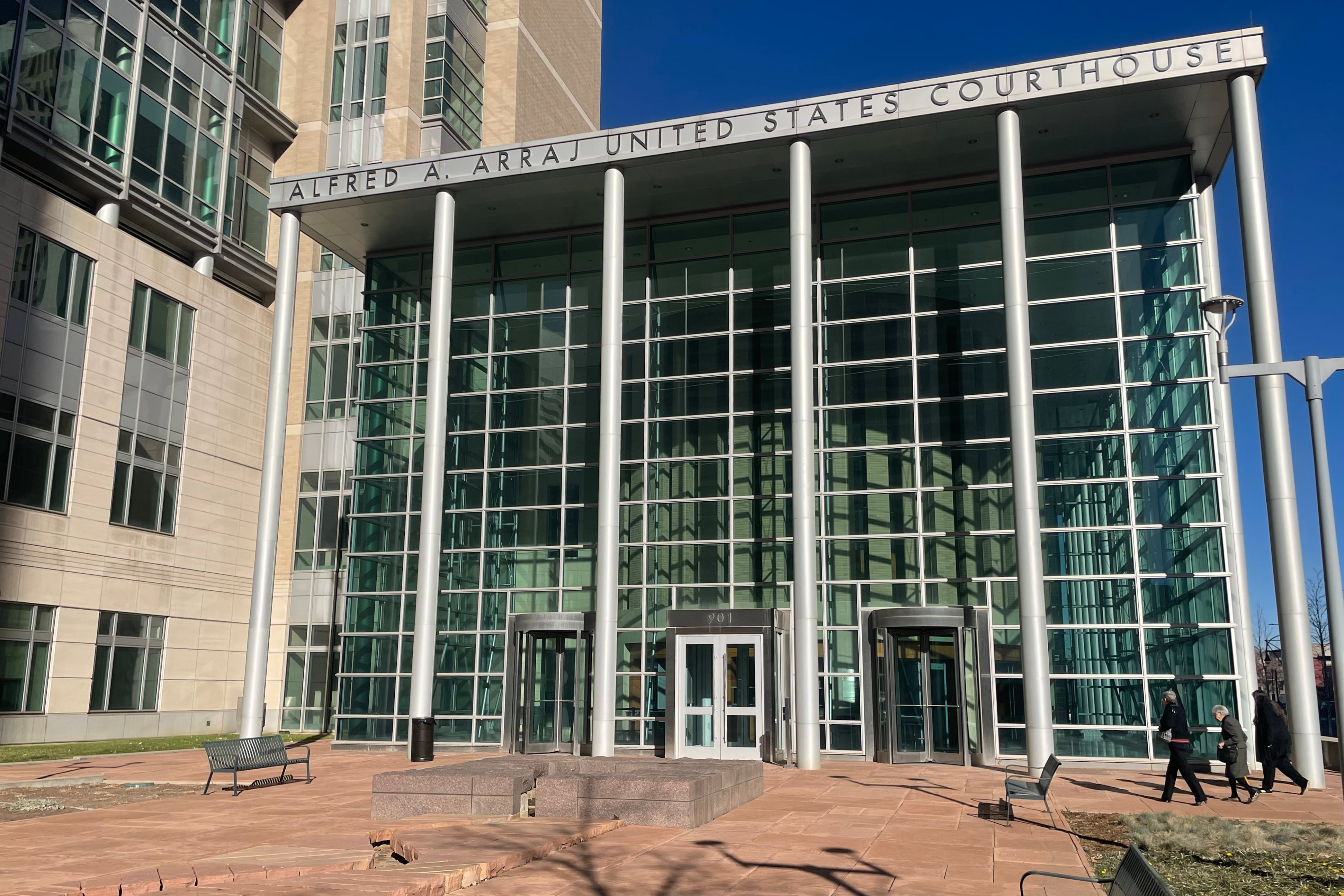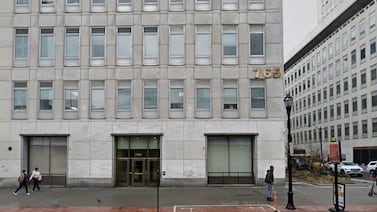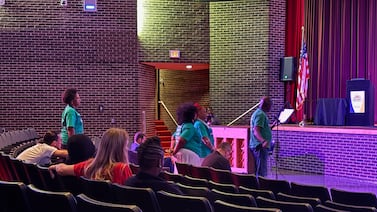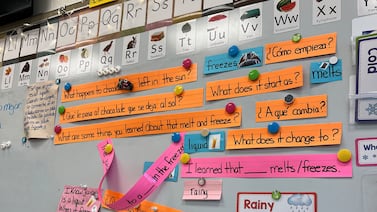Enrolling preschoolers from LGBTQ families would conflict with the religious beliefs and obligations of Catholic preschools, attorneys for two Denver-area Catholic parishes said Tuesday as the trial began in a lawsuit challenging the nondiscrimination rules in Colorado’s universal preschool program.
Two Catholic parishes that run preschools — St. Mary’s in Littleton and St. Bernadette’s in Lakewood — and the Archdiocese of Denver sued the state in federal district court in August. They argued that a nondiscrimination clause in an agreement required by the state for participation in the preschool program conflicts with their mission to provide a Catholic education. Senior U.S. District Judge John L. Kane, who is presiding over the trial, recently issued an order dismissing the archdiocese as a plaintiff.
Attorneys for the state said Catholic preschools under the archdiocese are being treated the same as other preschools in the program, and that the nondiscrimination agreement in question is similar to the ones some Catholic schools have signed in the past for other kinds of publicly funded programs.
The lawsuit could have big implications for the new $322 million preschool program, which launched in August and enrolls more than 60% of the state’s 4-year-olds this year. A win for the Catholic preschools could bring more faith-based schools into the preschool program, but it could limit the state’s ability to set nondiscrimination policies for an education program that it pays for.
A win for the state could deter some faith-based preschools from participating, but it means families with LGBTQ parents or children couldn’t be shut out of preschools because of their sexual orientation or gender identity.
The trial is expected to last several days, with the judge making the decision.
Four witnesses testified for the Catholic preschools on Tuesday, including the mother who said her family would have saved several thousand dollars if the Catholic preschool her 4-year-old attends had been able to participate in universal preschool this year.
Colorado’s universal preschool program offers 10 to 30 hours of tuition-free preschool a week to 4-year-olds. Families can pick preschool classrooms in public schools, private child care centers, faith-based programs, or state-licensed homes.
The two parish preschools that sued declined to join the program after the archdiocese instructed them not to sign the state’s nondiscrimination agreement, which prohibits discrimination based on religion, sexual orientation, and gender identity, among other factors. The lawsuit asserts that the nondiscrimination clause could prevent them from prioritizing children from Catholic families for enrollment, or force them to admit a child who identifies as a gender “at odds with their biological sex,” or a child whose parents “identify as gay or lesbian” or are “part of a same sex couple.”
The suit also argues that the state’s nondiscrimination rules would prohibit preschools from hiring employees who agree with the Catholic Church’s mission and teachings, including “that marriage is limited to one man and one woman for life.”
The lawsuit is one of two that religious preschools have filed over the state program. The other one, filed by a Christian preschool in Chaffee County that’s participating in the universal preschool program this year, also argues that the nondiscrimination provision could impede hiring, but didn’t focus on enrollment questions. A federal judge issued a preliminary injunction in October in that case, barring the state from punishing or withholding funds from the Chaffee County preschool even though some of its policies appear to violate the nondiscrimination agreement.
A third lawsuit was filed by several school districts last summer and deals with services and funding for preschoolers with disabilities as well as other high-needs students.
Nick Reaves, a lawyer for the Catholic preschools, said that in rare circumstances, schools overseen by the Archdiocese of Denver have turned away families on the grounds that their beliefs or practices conflict with what the school teaches. He said there have been no complaints from any LGBTQ families about any of the 36 preschools that operate under the archdiocese.
During her testimony Tuesday, Avery Coats, principal of the pre-K-8 school operated by St. Bernadette’s, described turning away a prospective fifth-grade student because the parents were a same-sex couple and school officials worried Catholic teachings would cause confusion and conflict in the family.
Of the more than 1,900 preschools that joined Colorado’s universal program this year, 40 are faith-based. Together, they serve about 900 children. State rules allow faith-based preschools to give children in their congregations priority for enrollment. But beyond that, they don’t allow enrollment decisions based on a family’s religion or beliefs.
While some families choose religious preschools to match their faith, others choose them because the schools are close to their homes or jobs, or because they offer full-day care or flexible schedules.
Lawyers for the Catholic preschools asked a state witness to clarify what kind of enrollment restrictions or conditions preschools in the universal program are allowed to have. For example, Reaves asked, could a Jewish preschool, as a condition of enrollment, ask parents to sign a statement of faith saying they won’t eat pork and will keep kosher?
The witness, Michael Cooke, who helped roll out the universal preschool program, said that the question hadn’t come up before but that the state wouldn’t object to an enrollment condition based on the preschool’s particular program.
“Where we would object is if there was something in a statement that a family needed to sign or acknowledge that is contrary to anything that’s in statute or in policy or rule,” Cooke said.
Ann Schimke is a senior reporter at Chalkbeat, covering early childhood issues and early literacy. Contact Ann at aschimke@chalkbeat.org.







